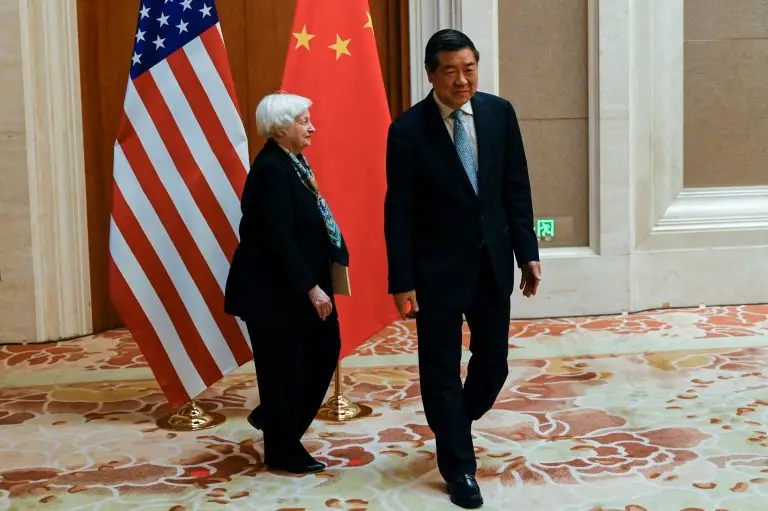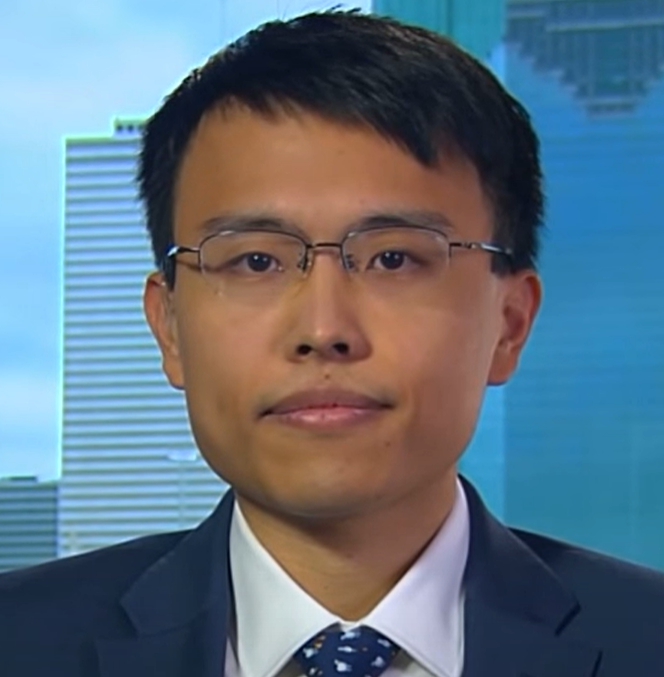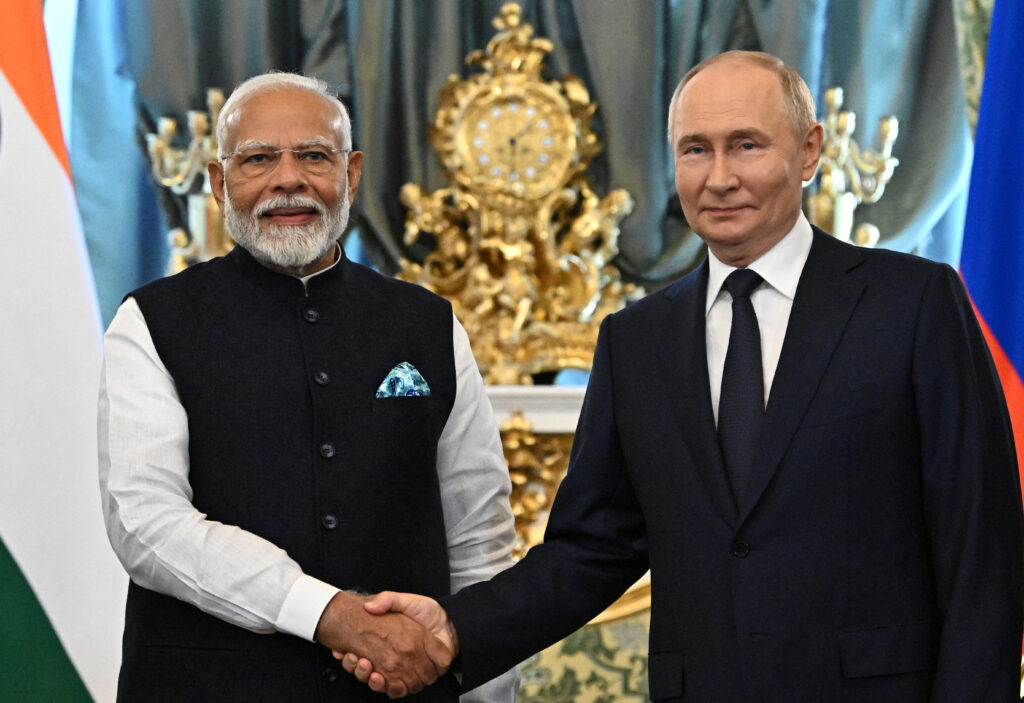[동아시아포럼] 미·중 워킹그룹 가동, 관계 개선 가능성 모색
올해 7월, 옐런 장관 방중 이후 대화 채널 복원에 합의 지난달 워킹그룹 첫 회의, 차관급 정례 회의 개최 예정 현안에 대해 직접 소통, 상호 신뢰와 투명성 확보 관건
[동아시아포럼]은 EAST ASIA FORUM에서 전하는 동아시아 정책 동향을 담았습니다. EAST ASIA FORUM은 오스트레일리아 국립대학교(Australia National University) 크로퍼드 공공정책대학(Crawford School of Public Policy) 산하의 공공정책과 관련된 정치, 경제, 비즈니스, 법률, 안보, 국제관계에 대한 연구·분석 플랫폼입니다. 저희 폴리시코리아(The Policy Korea)와 영어 원문 공개 조건으로 콘텐츠 제휴가 진행 중입니다.
지난달 24일(현지시간) 미·중 경제·금융 협력을 위한 워킹그룹이 첫 회의를 가졌다. 앞서 지난 7월 재닛 옐런(Janet Yellen) 미 재무장관의 방중을 계기로 양국은 대화 채널 복원에 합의했고 이에 대한 후속 조치로 지난 9월 워킹그룹을 발족시킨 바 있다. 두 대국 간의 경쟁과 갈등이 글로벌 경제의 위기 요인으로 작용하는 가운데, 워킹그룹이 양국 관계 개선의 전환점이 될 것이란 기대감이 고조되고 있다.

미·중 여전히 상호의존적, 디커플링 개선 의지 보여
미·중 워킹그룹의 출범은 오랜기간 경쟁을 이어온 양국의 디커플링을 해소하고 디리스킹(위험제거) 전략으로 전환하는 계기가 될 것으로 보인다. 디커플링(decoupling)은 국가 간 경제 흐름이 서로 다르게 나타나는 탈동조화 현상을 말하는데 최근에는 중국을 겨냥한 미국의 전략 기조를 뜻하는 버즈워드(buzz word·유행어)가 됐다. 지난 몇 년간 주요국 간의 무역 전쟁과 코로나19 팬데믹이 국가 간 상호의존성을 축소시켰지만 양국 경제의 완전한 디커플링은 두 나라 모두에게 큰 손실이 될 가능성이 높다. 이에 미국과 중국 정부는 디커플링의 위험을 기민하게 인지하고 신중히 대응하고 있다.
미·중 경제는 여전히 상호의존적이다. 양국 간 무역 규모는 지속적으로 증가해 지난해 6,807억 달러(약 865조원)을 기록하며 2018년 6,635억 달러(약 800조원) 이후 최고치를 경신했다. 올해는 8월까지의 누적액이 3,690억 달러(약 480조원)를 넘어섰다. 또한 중국은 미국 국채를 가장 많이 보유한 국가로 올해 7월 기준 미국 국채 보유액이 8,210억 달러(약 1,100조원)에 달한다.
미·중 워킹그룹은 경제·금융 분야의 소통을 위한 협의체로 고위 관리자들이 참여해 지속적인 대화 채널로 운영될 예정이다. 재닛 옐런 장관과 허리펑(He Lifeng) 중국 국무원 부총리는 양국 간 긴밀한 상호작용과 신뢰 강화를 위해 정기적으로 차관급 회의를 개최하기로 합의했다. 대화의 연속성을 보장함으로써 형식적인 의견 교환의 수준을 넘어 구체적인 정책 현안을 논의하기 위한 조치다.
국가 간 이해관계가 복잡하게 얽혀 있는 국제정치에서 오해와 갈등을 유발하지 않으려면 무엇보다 투명하고 개방적인 대화가 보장돼야 한다. 이러한 측면에서 미·중 워킹그룹은 양국의 긴장관계로 인한 불확실성을 완화할 수 있는 좋은 기제가 될 것으로 보인다. 특히 단발성으로 진행되는 고위급 회담과 달리 워킹그룹은 직접적인 대화 채널로 제3국의 개입이나 왜곡 없이 자국의 입장과 목표, 우려를 명확하게 전달할 수 있다. 즉 양국이 신뢰를 기반으로 장기적이고 지속적으로 교류할 수 있도록 관계 악화의 제동장치로 작동할 가능성이 높다.
무역 불균형·국가안보 등 사안에 따라 갈등 여전해
다만 워킹그룹은 낙관주의와 현실주의를 균형 있게 유지해야 한다. 워킹그룹의 출범은 분명 미·중 긴장관계를 완화하는 데 중대한 역할을 하겠지만 이것이 모든 현안을 해결할 수 있는 만능열쇠가 될 수는 없다. 실제 지난 10월 열린 금융 분야 워킹그룹 첫 회의에서 양국은 국제통화기금(IMF)의 쿼터 재조정을 두고 입장차를 확인했다. 미국은 IMF의 전체 쿼터를 늘리되 지분 구조를 조정하지 않아야 한다고 주장했으나, 중국은 자국의 지분을 제한하는 미국의 제안을 지지하지 않았다. 미국과 중국은 비단 IMF 쿼터 재조정 외에도 향후 경제·금융 분야의 거의 모든 현안에서 의견 대립과 입장차로 인한 논쟁을 이어갈 것으로 보인다.
저비용 제조업을 기반으로 글로벌 경쟁력을 키워온 중국의 산업구조도 미국의 입장에서는 개선해야 할 과제다. 그동안 중국은 ‘세계의 공장’으로 불리며 풍부한 노동력을 활용해 저렴한 가격에 재화를 공급해 왔는데 이로 인해 미국 등 주요국의 대중국 무역적자가 악화되면서 무역 불균형을 초래했다. 특히 기술 패권을 두고 국가 간 경쟁이 심화되고 있는 하이테크 분야에서는 국가안보가 주요 이슈가 되고 있다. 앞서 지나 러몬도 미 상무부 장관은 “중국의 발전이 미국의 국가안보에 심각한 위협을 초래했다”며 “미국 최고의 벤처 자본가 정신, 노하우와 자금이 중국 군대에 사용될 반도체나 인공지능 기술에 활용돼서는 안 된다”고 말했다. 이어 지난 8월 중국 방문 직후에는 “국가 안보의 문제에서 타협이나 협상은 있을 수 없다”고 강조하기도 했다.
중국 정부의 자국 우선주의 정책도 양국의 갈등을 촉발하는 요인이 되고 있다. 최근 중국 정부는 자국산부품 사용요건(Local Contents Requirement, LCR) 등 미국 기업의 중국 진입을 막기 위해 규제를 강화하고 있다. 이에 대해 러몬도 장관은 “중국 정부가 아무 설명없이 미국 기업에 엄청난 벌금을 부과하거나 압수수색을 벌이고 있다”며 “자국 기업들로부터 중국이 너무 위험해 투자가 불가능하다는 얘기를 더 많이 듣고 있다”고 지적했다.
미·중 관계가 글로벌 경제에 미치는 영향은 실로 위협적이다. 양국의 선택은 전 세계 산업을 재구조화하고 글로벌 시장과 지정학적 구도를 재편하는 데 지대한 영향을 미친다. 워킹그룹을 통해 대화가 재개됨에 따라 전 세계의 이해관계자들이 미·중 관계의 변화에 주목하고 있다. 앞서 언급했듯 워킹그룹이 두 대국 간의 문제를 근본적으로 해결하는 만병통치약은 아니다. 하지만 국제 사회에서 경쟁과 협력이 공존할 수 있음을 보여주는 성공모델이 될 순 있다. 워킹그룹이라는 대화의 창은 미·중 간 상호존중과 이해를 촉진하는 기민한 외교 전략으로 양국의 관계 개선뿐만 아니라 국제 정세와 글로벌 경제에 중대한 역할을 할 것으로 전망된다.
원문의 저자인 위한 장(Yuhan Zhang)은 베이징외국어대학교(Beijing Foreign Studies University) 국제경영대학원 G20센터 겸임교수로, UC버클리에서 중국 정치경제 분야 연구를 수행하고 있습니다.

New US–China working groups bridging bilateral gaps
23 marked a noteworthy pivot in the often-volatile relations between Washington and Beijing. Amid the escalating tensions of what is widely recognised as ‘great power rivalry’, these working groups have the potential to foster greater stability between the world’s two largest economic superpowers.

In recent years, ‘decoupling’ has become a buzzword that symbolises the United States and China’s intent to disentangle their economies. The establishment of the working groups challenges this notion to an extent. While certain dynamics of the ongoing trade war and the pandemic may have hinted at a move towards reduced interdependence, complete economic decoupling is likely to harm both the United States and China. Astute policymakers on both sides are wary of the risks associated with decoupling. The reality remains that bilateral economic ties are characterised by intrinsic interdependence.
Trade between the United States and China has remained substantial. As of August 2023, the total value of the US trade in goods with China exceeded US$369 billion. China has also been one of the largest foreign creditors to the US government, holding US$821 billion worth of US Treasury bonds in July 2023.
The working groups will serve as a forum for bilateral policy exchange. Under the guidance of high-ranking officials from both countries, they offer a structured channel for sustained dialogue, promising several benefits.
Supported by US Treasury Secretary Janet Yellen and China’s Vice Premier He Lifeng, along with regular meetings at the vice-ministerial level, these working groups are well-prepared for consistent and high-level interactions. Such continuity ensures that discussions can move beyond superficial exchanges and delve into more substantive policy matters.
In the intricate realm of international relations, transparency — or a lack thereof — can be a significant destabilising factor. The US–China working groups, by promoting frank dialogue on macroeconomic and fiscal trajectories, can mitigate uncertainties that might otherwise inflame tensions.
Direct communication is one of the most effective tools in preventing misunderstandings. These working groups offer an opportunity for both nations to clarify their positions, objectives and concerns directly without the distortion of third-party interpretations.
The US–China working groups have the potential to act as a fulcrum for stabilising economic ties. Regular interactions at the bureaucratic level can build a foundation of trust, which is often missing in high-stakes diplomatic negotiations.
Balancing optimism with realism is crucial. While the inception of the working groups is a laudable stride towards de-escalating tensions, it is not a silver bullet for all bilateral challenges.
During the initial meeting of the financial working group, differences emerged, notably in the discussion of the International Monetary Fund (IMF)’s quota-based lending resources. The United States advocated for an increase in IMF quota-based lending resources without changing its shareholding structure, while China showed reluctance to support this proposal without an increase in its IMF shares.
Secretary Yellen expressed optimism for an ‘equi-proportional’ quota increase, where each member country’s contribution to an increase in quotas is proportional to their current IMF shareholdings. This divergence reflects broader disagreements between the United States and China on financial and economic cooperation.
The working groups may face challenges in addressing structural trade imbalances, as the capital account can drive the current account and low-cost Chinese goods continue to retain their global competitiveness. In the domain of high-tech competition, security imperatives will continue to drive intense rivalry. The US government may sustain pressure on the Chinese government, as indicated by Commerce Secretary Gina Raimondo during her Beijing visit, when she said the United States will not compromise or negotiate in matters of national security.
At the same time, Beijing’s increased industrial policies and domestic content requirements might impede US businesses from penetrating the Chinese market, potentially exacerbate technological contestations.
Given the overarching significance of the US–China relationship on the global stage, their choices can recalibrate global markets, influence worldwide innovation and redraw the geopolitical cartography for generations. As global stakeholders keenly monitor the evolving US–China interplay, the working groups, while not a panacea to address fundamental problems between these two great powers, illuminate potential for rivalry and collaboration to coexist. The working groups also demonstrate that astute diplomacy can foster mutual respect and understanding.
Such platforms for dialogue are not only beneficial but crucial for US–China relations, especially in the context of their great power rivalry.



























